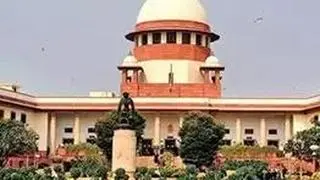“We do get calls from a few companies for hiring students, but the students are not willing to move to Pune or Nagpur because their parents won’t let them go due to fears related to the ongoing pandemic,” says Anurag Singh, who operates a training centre in Chandrapur, Maharashtra, under the Pradhan Mantri Kaushal Vikas Yojana 2.0 (PMKVY 2.0) scheme.
Singh’s training centre has partnered with Bengaluru-based Excelus Learning Solutions Pvt Ltd to provide short-term industrial training, which lasts for three months, in domains such as logistics, tourism and hospitality, and electronics and hardware. Before the onset of Covid-19, almost all students training at Singh’s facility were getting job placements. Now, it is down to about 55 per cent with an average monthly salary of ₹12,000
Sameer Gupta (name changed on request), a trainer at a Delhi skill centre, is also seeing a similar trend. “As it is there are no placements during the Covid season. Some companies whom we had tied up with have shut down or have stopped hiring. There are some companies approaching us to hire for online based jobs, but the training we are giving is production-based, so these companies are not suitable to us,” he says.
PMKVY (2016-2020), India’s largest skill certification scheme, implemented by the National Skill Development Corporation (NSDC), enables the youth to take up industry-relevant skill training free of cost. The students are also given placement assistance or entrepreneurship support according to their choice. The scheme is available to any unemployed youth in the country possessing an Aadhar card, alternate ID, and a bank account.
Shutdown of TCs
During the nation-wide lockdown from March to September, Training Centres (TCs) were mandated to remain shut by the Central and State authorities. Vijay, who runs training centres with ‘Acme Microsys Pvt Ltd’ Training Partner (TP), is the authorised trainer for CCTV installation technician courses for the district of Malappuram, Kerala. He said: “We are still getting enquiries regarding the courses as usual, but the centre is closed. Right now, all over the State, PMKVY batches have been put on hold. The State government has not made a decision regarding the re-opening. Although the Central government has given approval to reopen the centres from September 21, the final decision lies with the State government,” Vijay added.
Covid-19: Fear of job loss haunts half of world’s workers as pandemic crisis rages
The shutdown of the centres comes even as unemployment rate has hit a new high. The labour participation rate for October was recorded at 40.66 per cent by CMIE (Centre for Monitoring India Economy), which had never dipped below 42 per cent pre-lockdown.
Some TCs have suffered the worst of the economic downturn by way of targets getting revoked, salary cuts and lay-offs. “Yearly target enrolments for the course have to be completed before March 31 every year. If we don’t meet the minimum enrolment before deadline, the target will get lapsed. We will still get the funds for the enrolled students but for the pending targets, we will not get anything,” says Pradeep, a trainer from Bengaluru.
In some cases, the permit given to a centre have also been revoked as they could not meet this years enrolment targets. “We are not getting the required funds from the government for the target that we have already completed. The company had cut the salaries of the staff members by 50 per cent. In March we received full salary, but since April we faced 30-50 per cent cuts,” Singh stated.
“We have laid off our temporary staff members and some of our permanent employees as well,” he added.
Virtual training
Singh is one of the few trainers who has gone online with their training during the lockdown. “My centre has been conducting online training since April. That’s why we got at least 50 per cent salary,” he said. But most of the other centres have not been able to shift to the online platform due to the nature of training.
The payouts to the training centres by the government depend on parameters such as attendance, certification and placement performance. It is mandatory for the students to maintain 70 per cent attendance to be eligible to appear in the assessments. TCs should have a recorded placement of at least 50 per cent of the successfully certified candidates within three months of completion of the training.
Govt clueless on number of jobs lost during pandemic
“The payouts occur in three tranches. The first tranche is 30 per cent of the total cost, paid when the batch is created; the second is 50% after assessment, depending on the pass percentage of candidates; and the third tranche is 20 per cent, released once placement and its verification is done. We have received the payments promptly till date. In Kerala, there may not be any Training Partner at present who has reached the third tranche,” said Vijay.
“If we are training, say 180 students, we are able to place about 130 to 140 students. But there will always be a fail percentage of around 10 per cent uncertified candidates.” Vijay’s centres altogether had received 300 target allotments since their registration in 2016-17 with the scheme. The allotments had been split into 180, 120 and 60 across three of their centres in the district.
But some centres like the one operated by Pradeep from Chikmagalur, Karnataka, which offers courses in BFSI and ESSCI sectors, are doing relatively better. “Ever since the pandemic hit, a lot of people have left their jobs in Bengaluru, especially in the services sector and moved to their native places. So, people from other regions are ready to go there. We are making the platform for them to take up these jobs. Our GST Accounts Assistant course is in great demand among employers.”
Special guidelines
For operating during Covid, the TCs have been given special guidelines by the Ministry of Health and Family welfare (MoHFW). “We strictly enforce the use of masks and hand sanitisers at our centre. The batches have been split into two of 15 students each to maintain social distancing. We have also discontinued the AEBAS (Aadhar Enabled Biometric Attendance System) and use manual attendance instead, conferring to MoHFW’s safety standards for contact-less attendance procedure,” said Satam, a trainer from Bihar. “For the parents who are hesitant to send their children to TCs after the lockdown, we have been conducting home visits to assure them about our Covid safety regulations and once they are convinced of the standards, they let the children come.”
Niti Kumari, a student, training to be a frontline Heath Worker at Satam’s TC in Bihar, said: “I started going for PMKVY training after finishing my 12th standard examinations. The course started on March 3, but because of Covid, the centre was closed. The remaining two months of training started in September once the centre reopened,” shares Niti. “My father is a private school teacher and the sole earning member of the family. I want to supplement his earnings by contributing to the little family income we currently have. That is why I enrolled in the course. We are going to have our exam on November 29, after which we will have our placement,” she added. “I have been going regularly since the lockdown lifted, along with my friends. We like attending the training at the centre.”
Hilda Varghese, Managing Director (MD) of Manchester Paramedical College, said: “Now, every regulation is in place, including AEBAS, to admit new students, for which we are also receiving large number of enquiries. The coronavirus outbreak and orders from the State government restricts us from beginning the courses. Once the State government lifts the lockdown, we can start the courses.”
(The writer is interning with BusinessLine ’s Mumbai bureau)








Comments
Comments have to be in English, and in full sentences. They cannot be abusive or personal. Please abide by our community guidelines for posting your comments.
We have migrated to a new commenting platform. If you are already a registered user of TheHindu Businessline and logged in, you may continue to engage with our articles. If you do not have an account please register and login to post comments. Users can access their older comments by logging into their accounts on Vuukle.